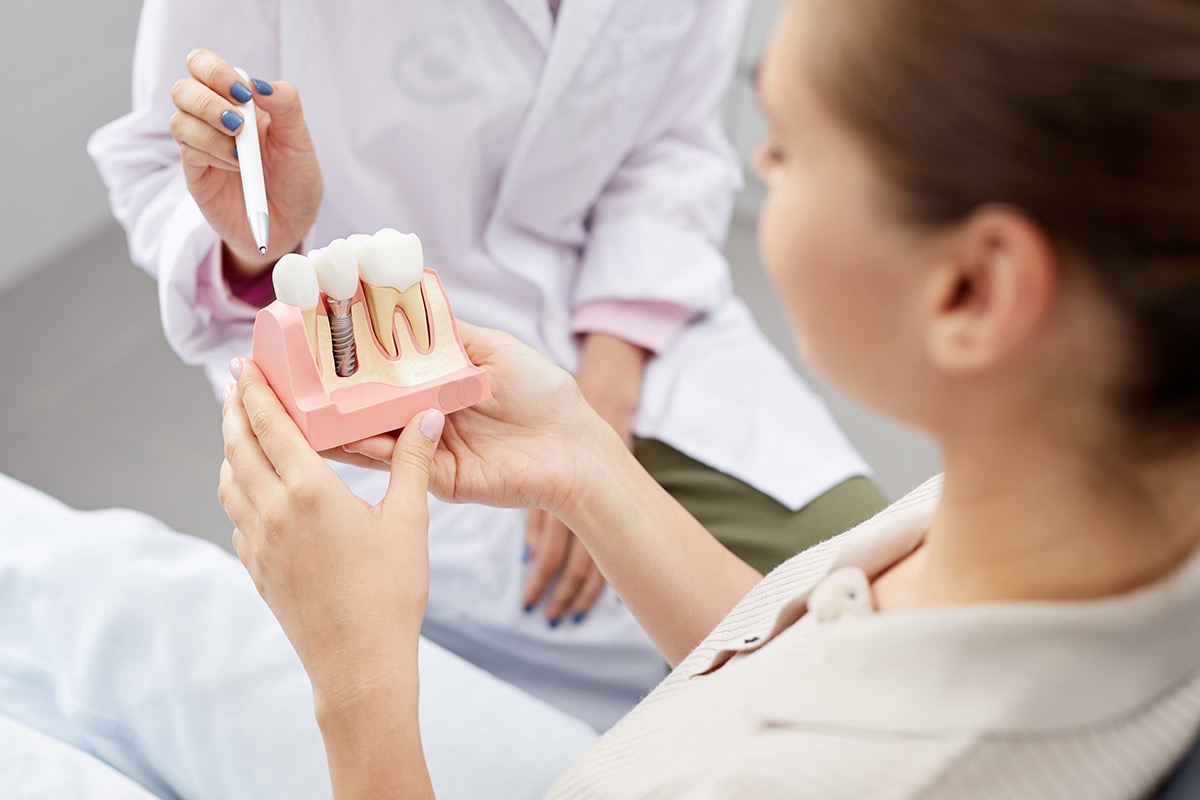Over the years, dental care has improved vastly. Gone are the days when dentures and bridges were the only options for people with missing teeth; thanks to the latest innovations in dental science, anyone can now achieve the perfect and complete set of teeth that they have always wanted.
A dental implant is a metal fixture that replaces the root segment of a missing tooth. It is mainly used to improve facial structure and prevent the deterioration of the jawbone. An implant feels and looks more natural than standard dentures and bridges because it is firmly anchored in your jawbone, like a real tooth. Some of the benefits of getting dental implants in Singapore are as follow:
1. Natural look and comfortable fit
Dental implants are created to mimic the appearance of a real tooth, so people will hardly notice which are your actual teeth and which are the restored ones. Implants can potentially last a lifetime and thus eliminating any need for removable dentures.
2. Provides better speech capability
People with ill-fitting dentures can often be seen slurring or mumbling because of the innate fear of having their false teeth slip out. Having dental implants firmly held in place by the jawbone, you will be able to talk and laugh as much as you want.
3. Makes eating easier (and more enjoyable, too!)
You will no longer have to worry about sliding dentures while eating your favourite foods as dental implants will not move.
4. Regain self-confidence
Wearing of dentures and/or have missing teeth often affects a person’s confidence. With dental implants that look and function like natural teeth, you will be able to smile with more confidence.
5. Cost-effective and durable
Dental implants do not come cheap but you can look at it this way: if you choose other tooth restoration options that will need to be replaced at some point, then investing in dental implants sound reasonable. Implants will last for a long, long time (a lifetime, even), if proper care is given.
Dental Implant Surgery Success Rate
Generally, the success rate of dental implants is 98%, Dentaleh reports. In some instances, the success rate will depend on the location of the implants in the jaw according to their research. Any person who is physically fit to undergo the process of dental extraction or oral surgery is qualified to get a dental implant. The dentist will evaluate the condition of your gums and bones before you any procedure is undertaken. He or she will discuss your oral hygiene and will confirm if you can commit to having regular dental visits. People who are long-time smokers, with chronic diseases like heart disease or diabetes, or have had radiation therapy to their neck/head, will undergo further evaluation before they can be considered for dental implants.
A lot of people are curious if dental implants are covered by dental insurance and the answer to that, in general, is “no”. The coverage of the procedure will depend on your medical insurance plan and/or cause of tooth loss. Before you set-up, an appointment with your dentist, make sure to raise your questions with your insurance provider.
Dental Implant Types
There are three types of implants that are available today. The most common type is endosteal implants. These can be used for people who have a healthy jawbone.
Endosteal implants
Endosteal implants are held by screw-type posts that are fused into the jaw.
Subperiosteal implant
An alternative to endosteal implants is the subperiosteal implant. Instead of fixing the false teeth on a post in the jawbone, this type of implant is placed on the top of the bone with a metal frame under the gum. This is recommended only for patients who do not have enough jawbone to place an implant onto and for people who do not prefer to undergo intensive oral surgery.
Zygomatic implants
If any of the two procedure does not apply to you, then zygomatic implants may just be the one for you. Zygomatic implants involve the most complicated process and are only done when a patient does not qualify for an endosteal implant. The procedure involves placing the implant in the cheekbone of the patient instead of the jawbone.
The process of having dental implants in Singapore starts with the introduction of a unique dental treatment plan. This plan is created to address the individual needs of each patient and it is created by a team of dental health professionals who are trained in the areas of restorative dentistry and oral surgery. Once the team determines the most suitable implant option for you, the tooth root implant made of titanium will be inserted into the bone socket of the missing tooth. The jawbone, as it heals, will envelop the dental implant securely.
An abutment, or a small connector post, will hold the new tooth in the jawbone. The new tooth (or teeth) is created by making a model of your bite. This impression preserves the arrangement, as well the type, of the teeth inside your mouth. The replacement tooth called a crown will be attached to the abutment. The last step is when the dentist matches the colour and textural properties of the new teeth to your actual teeth. This way, the implant will look and feel natural.
The entire process may cause a bit of discomfort to the patient. You may ask your dentist for the anaesthesia if you are worried about pain. After the procedure, there may be some soreness to the area where the implant is placed. This can easily be managed by over-the-counter pain medications. Your dentist will also remind you that dental implants, like real teeth, require proper oral hygiene. You need to brush, floss, and if necessary, use an antibacterial mouth regularly to keep them the implants clean and healthy. Routine dental visits are advised, too, to keep them in tip-top shape.








